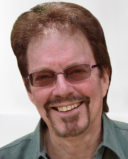Health
Nihilism Wreaks Havoc on Mental Health, the Antidote Is Joy
A personal perspective: The meaning of life is life.
Posted September 2, 2022 Reviewed by Tyler Woods
Key points
- It can be hard to find purpose and meaning in a world where traditional sources have been rendered, for many people, null and void.
- The physical sensation of being alive is what, in English, we call joy.
- When we experience joy, the meaning of life becomes self-evident.
- All schools of psychotherapy seek to remove blockages to the life-force, and increase the client's joy in being alive.
The great novelist Dostoyevsky saw clearly that, “If there is no God, everything is permitted.” He saw, too, that this proposition led directly to the hell of nihilism: anarchy, rage, destruction, despair, and not just suicide, but mass murder and genocide.
If Moses invented the Ten Commandments, they are, as the joke goes, simply ten suggestions. If there is no Supreme Being checking up on us, rules of behavior have no authority beyond what can be suggested by wisdom, or imposed by force. There is no heaven to strive toward, no eternal flames to avoid, no Absolute Goodness to be our guide.
Life under these conditions can seem the tiniest achoo in an incomprehensible emptiness. In such a world, devoid of meaning, and from which we’re doomed to exit painfully, motivation may well be in short supply.
Neurologist, psychiatrist, and philosopher Viktor Frankl wrote Man’s Search for Meaning after surviving four Nazi death camps, noting that prisoners who found purpose and meaning in their lives were more likely to survive than those who didn’t. Yet where is meaning to be found, if our lives are simply pain-filled blips in infinite space-time?
To anyone who finds an answer that works for them, bravo. There is, however, one answer so simple it’s easy to overlook. The physical sensation of being alive—the feeling evoked by the free-flowing of what has been called the “life-force”—is, I’m convinced, what we humans know as joy. Friedrich Schiller, author of “Ode to Joy,” was one of many poets who have sensed this to be true. The more powerfully the life-force flows, the greater the joy. When that life-force is impeded—by psychopathology, or disease, or villainy, or just bad luck—we feel sorrow, suffering, pain.
If the literal meaning of life, its physical essence, is joy, it follows that life’s purpose is to strive toward that joy—not so different from heaven, if more time-limited. “Follow your bliss,” as mythologist Joseph Campbell said. Joy is inherently meaningful. If joy is a product of the life-force, then life must be meaningful, too. It is, in effect, its own meaning.
This “secret,” discovered and re-discovered over many millennia, can’t be teased out by reason alone. It must be experienced by the whole being, body and mind together. The surge of the life-force overrides logic. More than one person has felt, in the midst of great sex, that he or she could never die.
Note that I say joy, not pleasure or fun. Those may contribute to joy; they may also be way-stations on the road to suffering. Think of shooting up with fentanyl, or street-racing in LA, or having sex with an infectious stranger. Joy transcends pleasure or fun. It is an experience of what would once have been called “the divine.”
Laughter, creativity, friendship, love, sports, music, work that grows out of and feeds the spirit—these, and a vast number of other activities that bring joy, bring meaning too. It’s important to note, as well, that seeking joy does not mean disregarding others. For most people, good interpersonal relationships are necessary to maximize the flow of the life-force, and the joy.
That our lives lack cosmic significance does not render them meaningless. Even the universe will end. Given the inexplicable and miraculous gift of life, it’s foolish not to savor it when and while we can.
As part of that savoring, that experience of joy, it’s good to thank the universe—uncaring as it may be—for giving us, against all odds, the gift of life. Gratitude opens channels for the life-force, just as chronically unresolved anger and resentment constrict those channels and restrict the flow.
If joy is the meaning of life, and life is the fountainhead of joy, then other living things must feel joy too. Forget the “error” of anthropomorphizing. Watch dolphins cavorting in the surf, horses galloping across a field, kittens rolling around your living room, and try to believe they don’t experience joy. Watch a falcon stoop to snatch a pigeon from the air, and tell yourself it doesn’t feel joy as it kills and eats, and feeds its demanding, joyful young. Joy isn’t sentimental. Life isn’t kind. For humans, though, with our ability to empathize, kindness can lead to joy.
The goals that psychotherapists work toward—authenticity, creative flow, mind-body congruence, extinguishing bad habits and destructive self-talk, making the unconscious conscious, self-actualization—all are ways to un-kink the life-force and let joy flow. Watch Mike Trout track down a ball in center field. Listen to Beethoven’s “Ode to Joy”—inspired by Schiller’s poem—and think of Beethoven composing it while unable to hear. Remember times when your own life-force felt inexhaustible, and your life’s meaning seemed self-evident.
I write these words as Covid tries to shut my life-force down. By writing, I access one of my sources of joy, and assert that, for now at least, I will prevail.
My son just texted, “Dad—I hope your immune system kicks Covid’s ass.”
I remember coming home after a long day’s teaching, and a maddening crawl through LA traffic, to find my son, then 3 years old, waiting for me. He didn’t say, “Hello Dad, how was your day?” or offer to take my book bag to my office. He didn’t put a great meal in front of me, as my wife did. He was so glad to see me that he screamed, “Daddy!” and just as I did to see my father, literally jumped up and down for joy.
References
Dostoyevsky, Fyodor, (1950). The Brothers Karamazov. New York, NY. Random House.
Frankl, Viktor. (2006). Man’s Search for Meaning, Boston, MA. Beacon Press.




